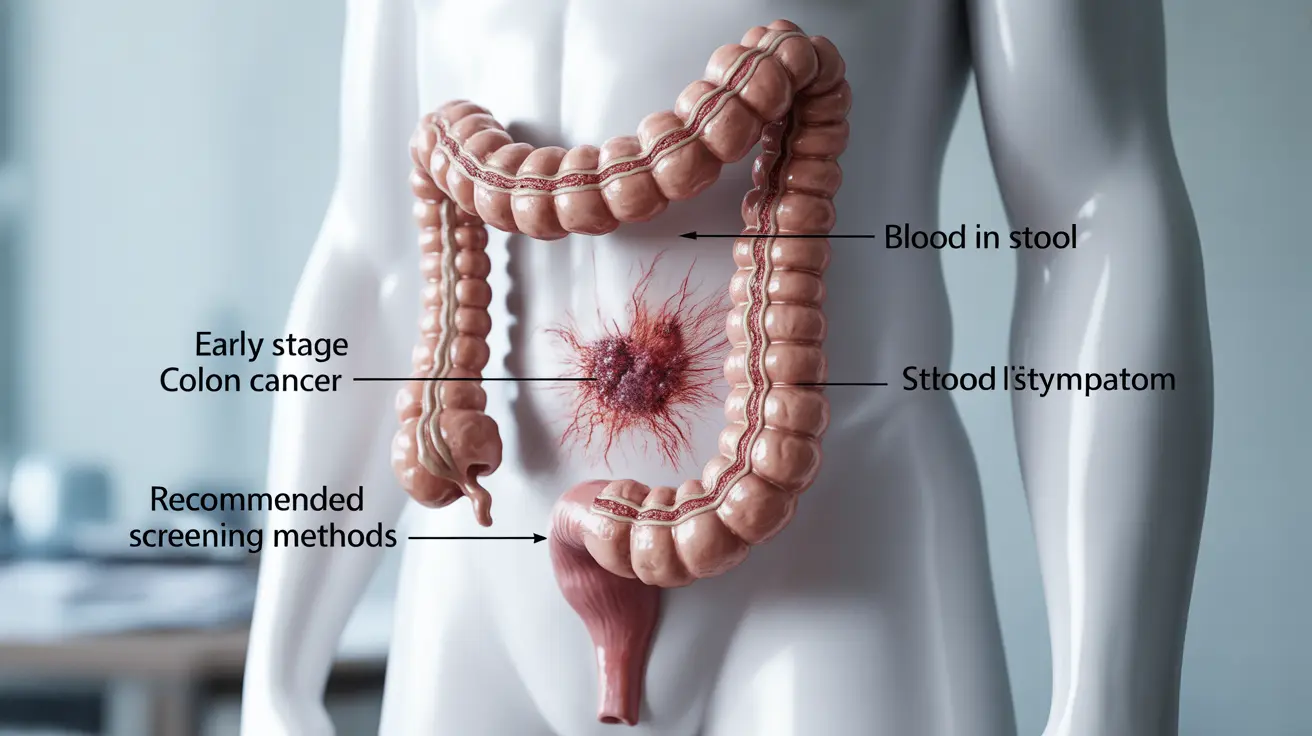Early detection of colon cancer significantly improves treatment outcomes, making it crucial to understand the symptoms of stage 1 colon cancer. While early-stage colon cancer often develops without noticeable signs, being aware of potential warning signals can lead to earlier diagnosis and more effective treatment.
This comprehensive guide explores the symptoms, detection methods, and screening recommendations for stage 1 colon cancer, helping you make informed decisions about your digestive health.
Common Signs and Symptoms of Stage 1 Colon Cancer
Although stage 1 colon cancer may not always present obvious symptoms, some people may experience subtle changes in their digestive health. Understanding these potential warning signs is essential:
Changes in Bowel Habits
- Persistent changes in stool consistency
- Alternating periods of constipation and diarrhea
- Narrow or ribbon-like stools
- Feeling that the bowel doesn't empty completely
Blood in Stool
- Bright red streaks in the stool
- Dark, tarry stools
- Blood on toilet paper after wiping
Early Detection Methods and Screening
Since stage 1 colon cancer often develops silently, regular screening becomes crucial for early detection. Healthcare providers typically recommend several effective screening methods:
Colonoscopy
- Examine the entire colon
- Remove suspicious polyps
- Take tissue samples for biopsy
- Detect cancer in its earliest stages
Other Screening Options
- Fecal immunochemical test (FIT)
- Stool DNA testing
- CT colonography
- Flexible sigmoidoscopy
When to Seek Medical Attention
- Unexplained weight loss
- Persistent abdominal discomfort
- Chronic fatigue
- Rectal bleeding
- Changes in bowel habits lasting more than a few weeks
Risk Factors and Prevention
- Family history of colorectal cancer
- Age (typically 45+ for average risk individuals)
- Personal history of inflammatory bowel disease
- Lifestyle factors such as diet and physical activity
Frequently Asked Questions
What are the common symptoms of stage 1 colon cancer?
Stage 1 colon cancer often develops without obvious symptoms. However, some people may experience changes in bowel habits, unexplained weight loss, persistent abdominal discomfort, or blood in the stool.
Can stage 1 colon cancer cause rectal bleeding or changes in bowel habits?
Yes, although not everyone experiences these symptoms, stage 1 colon cancer can cause rectal bleeding and changes in bowel habits. These changes might include alternating constipation and diarrhea or changes in stool consistency.
How is stage 1 colon cancer detected if there are often no symptoms?
Stage 1 colon cancer is primarily detected through routine screening procedures, particularly colonoscopy. Other detection methods include stool-based tests and imaging studies, which can identify cancer before symptoms develop.
When should I see a doctor about symptoms like blood in stool or persistent constipation?
You should consult a healthcare provider immediately if you notice blood in your stool or experience persistent changes in bowel habits lasting more than a few weeks. These symptoms, while not always indicating cancer, require proper medical evaluation.
What screening tests are recommended for early detection of colon cancer?
Regular colonoscopy is the most recommended screening test, typically starting at age 45 for average-risk individuals. Alternative screening options include FIT tests, stool DNA testing, and CT colonography, with frequency varying based on the specific test and individual risk factors.




